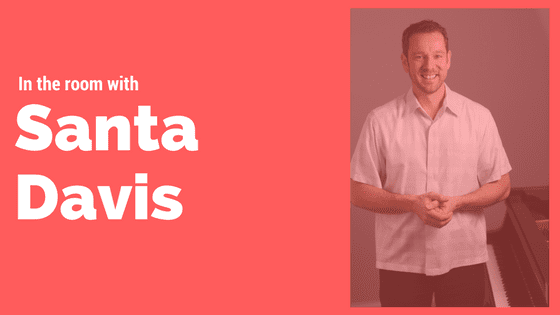In The Room With... Santa Davis

Carlton ‘Santa’ Davis is the drummer in reggae’s rolodex. Over the past 40 years he has performed with legends Bob Marley, Peter Tosh, Jimmy Cliff, Mighty Diamonds, and Burning Spear, as well manning the backbeat in Ziggy Marley’s band, a chair he’s held for more than a decade. Fresh off collecting a Best Reggae Album Grammy for Marley’s In Concert, we spoke with Davis in Los Angeles between rehearsals for Marley’s tour in support of his new Fly Rasta record. From his early years in the CYO drum corps to his current role as a top recording and touring musician, Davis is well-versed in the practice of practice.
What is your earliest memory of practice?
When I was 11-years-old. That was from the drum corps days, my first introduction to drumming.
Was being a member of the drum corps a special thing in your town?
Oh, yes. I didn’t know it at the time, but you would call it prestigious. I wanted to be a boy scout at the time, but then the drum corps happened.
Who was your first teacher?
The senior guys, the ones who were there before, gave us lessons.
About how old was a senior?
At the time the guy who started teaching me was going to college. He would’ve been maybe 17, 18-years-old.
Did you ever have trouble taking instruction from someone who was only a few years older than you?
Growing up in Jamaica in the ‘60s, we were taught to respect our elders. He was like a bigger brother. You have to have respect. He was teaching me something I wanted to learn. It didn’t matter if he was 35, 40, or 50- he knew more than I knew.
In learning your instrument, what was an early hurdle?
To be perfectly honest, I was like one-of-a-kind. I remember at that time they were wondering if I had done this before, because I was learning so fast. I was really open as far as learning. I was ready.
When did you realize this may be something you could do for a career?
Gradually it happened. I was a quick learner, so pretty early in the game.
How important was practice in your development?
That was the main thing. I practiced five days a week. After my homework and my home chores, I’d go to practice. I would also practice at home with my practice pad. It was an everyday thing.
Did that routine give you a sense of discipline in other areas of your life?
Yes. I think it was beneficial. Even to this day that is the discipline I have. I like to practice. I started from rudiments; paradiddles, single strokes, I went through all of that. I got to understand all of it, and that helps you advance.
Was there something about the way you played that made you desirable to those looking to hire a drummer?
It was an interest in what I was doing. I was quick at learning stuff. It was something that was in me.
You are essentially the top reggae drummer in the world. Do you still practice?
I’ve actually increased it. To be in the game right now, you have to know what you are doing. I’ve listened to a lot of different music. I got interested in jazz. I’ve listened to a wide selection; funk, classical, African. I used to buy a lot of records and I would sit down and mimic them. To be a proficient musician you have to know every genre of music.
Can you talk about your practice routine?
I would sit down and play ideas in my head. Just the basics. A lot of guys can play fast, but I do things very slowly, making sure I have coordination and balance. That’s very important. Everything has to be balanced.
What are some points you feel are necessary when learning or practicing an instrument?
For me, everything is mental. I play things in my head. Before I hear something I play it in my head and have a mental picture of what I’m going to do. It’s a spiritual thing. For me, music is very spiritual. You have to maintain focus. When I was younger, I used to do some things at random. If I was going to do a fill, I may be thinking about something else, and it wouldn’t come out like it was supposed to. I realized my focus was off. Keep things simple. Don’t try and do too much. Listen to a Bob Marley record, and you can hear that discipline.
How do you fit personal style into drumming, when the instrument requires such a consistency?
It comes down to placement, knowing the value of the notes and what you are doing. If you don’t have that kind of knowledge you won’t be able to fit your things into it. Jazz is a whole different ballgame, and I listen to that to see where I can fit it inside reggae.
Is there an aspect of practice that you think a lot of players overlook?
One of the most important things is posture, the way you sit behind the drums, the way the drums are positioned. Everything has to be in a place where you can reach them. You have to sit where you have control. Always sit over the drums. Once you sit right, you can play for hours and hours.
You are in the midst of a six-month tour in support of Ziggy Marley’s new Fly Rasta album. What are some of the things you do on the road to stay sharp?
I exercise. I ride the bike, lift some weights if there is a gym where we stay. I do a lot of stretches. You have to keep loose, especially if you are on the road a long time.